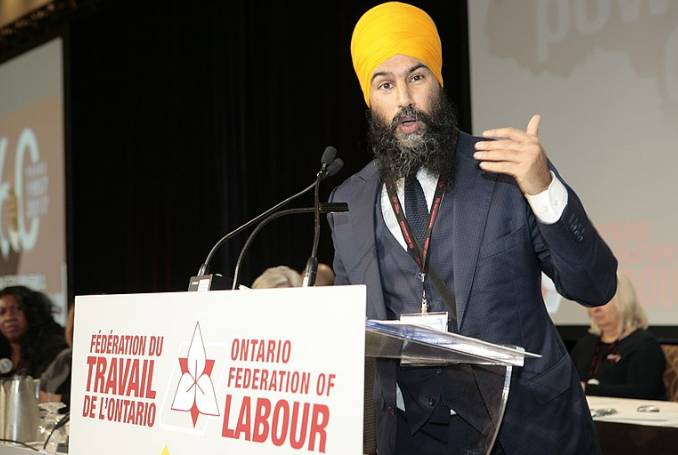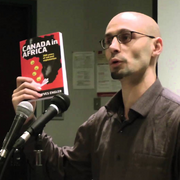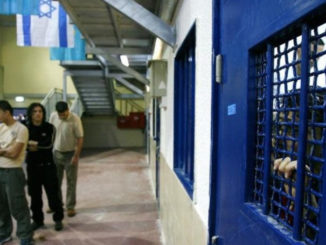
By Yves Engler
Over the past year, the New Democratic Party’s Palestine policy has dramatically improved. It could portend a decisive break from the Canadian social democratic party’s anti-Palestinian history.
Recently, NDP foreign affairs critic Heather McPherson sent a letter to foreign affairs minister Melanie Joly on “Canada’s position on Israel–Palestine”. The accompanying tweet read:
“The NDP will fight for the protection of human rights of Palestinians. Canada must:
Demand an independent investigation into the killing of Shireen Abu Akleh.
Denounce Israel’s plan to forcibly expel people from MasaferYatta.
Respond to Amnesty ’s findings of apartheid.”
The letter follows on the heels of multiple requests by McPherson for Joly to explain why the Liberals reject Amnesty International’s finding that Israel is committing the crime of apartheid. A handful of NDP MPs have signed the Independent Jewish Voices Together Against Apartheid pledge and even relatively conservative NDP MPs like Charlie Angus are sharing articles about Israeli apartheid.
Over the past year, MPs such as Matthew Green and Leah Gazan have made numerous statements and sponsored many parliamentary petitions opposing Israeli violence settlement expansion and illegal recruitment for the Israeli military in Canada.
The NDP’s shift on the issue is fairly dramatic. In the lead-up to last April’s party convention, Jagmeet Singh was asked about a number of widely supported resolutions regarding “Canada’s relationship to Israel and the Palestinian territory”.
Instead of responding to the CBC radio interviewer’s question, the NDP leader mentioned “anti-Semitism” four times. Asked again about “resolutions that in a sense condemn Israel’s treatment of the Palestinians”, Singh again failed to mention Palestine or Palestinians. Instead, he talked about “increased hate crimes also against people of the Jewish faith”.
Singh’s complete erasure of the long-oppressed Palestinians was stunning. But it probably helped their cause. A ferocious backlash prompted Singh to clarify his comments while simultaneously placing the party leadership on the back foot over the issue. This constrained their ability to suppress discussion of pro-Palestinian resolutions, which they had done at previous conventions.
Ultimately, over 80% of convention delegates voted for a resolution calling for “Ending all trade and economic cooperation with illegal settlements in Israel-Palestine” and “Suspending the bilateral trade of all arms and related materials with the State of Israel until Palestinian rights are upheld.”
Soon after the convention large protests erupted across Canada against a new round of Israeli violence and ethnic cleansing. Amidst the protests, Singh repeatedly raised the party’s call for an arms embargo and the NDP’s platform for the subsequent federal election called to “suspend arms sales to Israel until the end of the illegal occupation.”
This expression of solidarity represents a break from the party’s recent and (most of its) historic policy. During the 2019 and 2015 general elections, the NDP ousted several individuals from running or contesting nominations for parliament because they had defended Palestinian rights on social media. In 2016 then NDP foreign affairs critic Hélène Laverdière attended the American Israel Public Affairs Committee conference in Washington DC.
Months after her AIPAC sponsored trip, Laverdière participated in an event with the explicitly racist Jewish National Fund (JNF) during a visit to Israel. Laverdière was recruited to the party by former NDP leader Thomas Mulcair who said in 2008, “I am an ardent supporter of Israel in all situations and in all circumstances.”
While the CCF (NDP’s predecessor) briefly opposed Zionism, the party turned fanatically pro-Israel after the country’s creation. Former federal leader David Lewis was viciously anti-Palestinian and after a 1975 trip to that country, long-time leader Tommy Douglas said “Israel was like a light set upon a hill — the light of democracy in a night of darkness — and the main criticism of Israel has not been a desire for land. The main enmity against Israel is that she has been an affront to those nations who do not treat their people and their workers as well as Israel has treated hers.” Douglas’ comment was made after Israel ethnically cleansed the bulk of its indigenous population and repeatedly invaded its neighbours.
Remnants of this attitude remain in the party. MP Randall Garrison and activists such as Janet Solberg (David Lewis’ daughter) and Noah Tepperman (JNF Windsor board member) are examples. But the number of aggressively anti-Palestinian individuals in the party has dwindled to a small minority.
It is true, however, that outside pressure on the NDP remains significant. Israel lobbyists are no doubt monitoring party circles to find some clumsily worded statement or a sentence that can be taken out of context in a bid to label pro-Palestinian voices as anti-Jewish.
But, at the same time, those forces wanting the party to stand up for Palestinian rights have been bolstered by Amnesty International, Human Rights Watch and others recent moves to label Israel an apartheid state.
The NDP foreign affairs critic should be applauded for her recent interventions on Palestinian rights. However, a lot more work and many more activists are required to end Canadian support for Palestinian dispossession.

– Yves Engler is the author of Canada and Israel: Building Apartheid and a number of other books. He contributed this article to The Palestine Chronicle. Visit his website: yvesengler.com.







